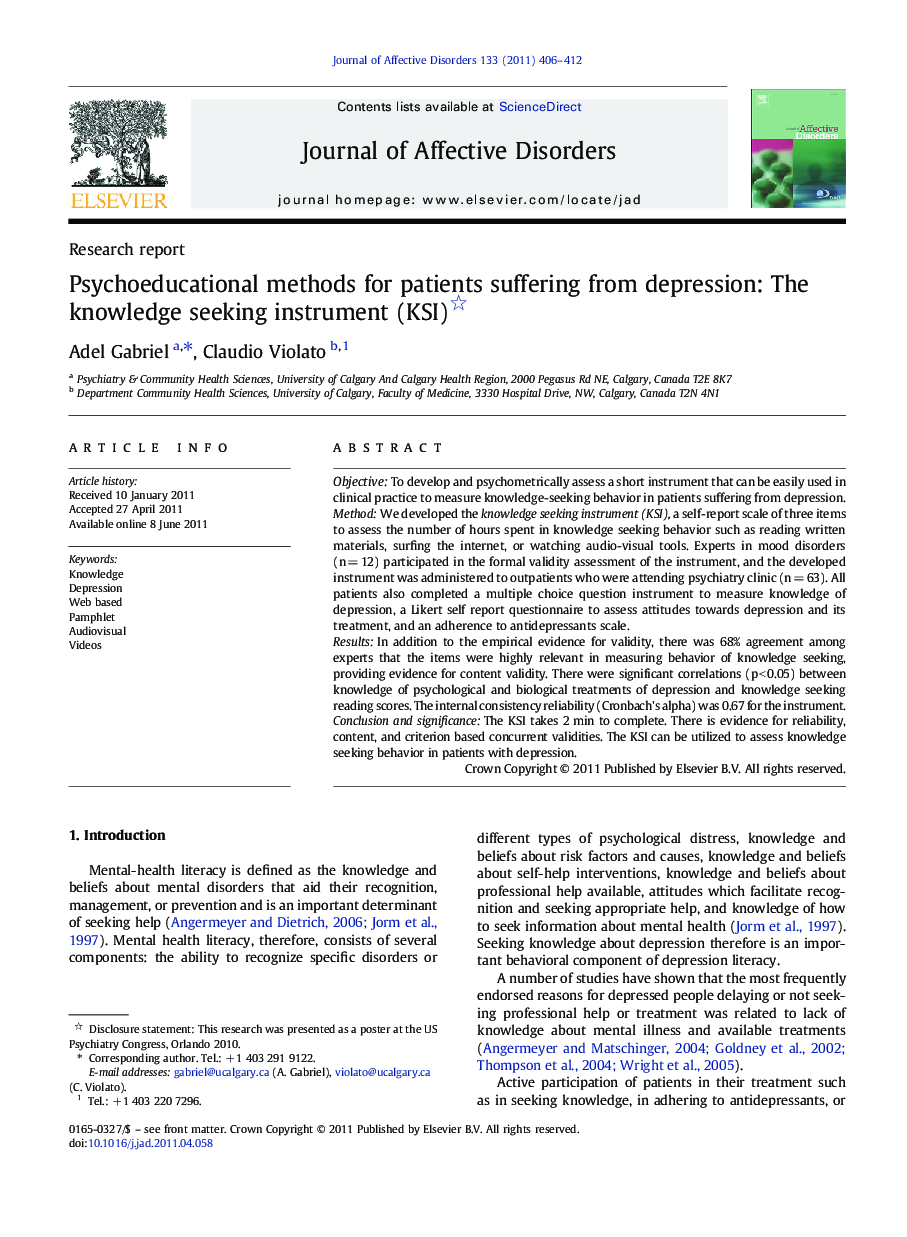| Article ID | Journal | Published Year | Pages | File Type |
|---|---|---|---|---|
| 4186387 | Journal of Affective Disorders | 2011 | 7 Pages |
ObjectiveTo develop and psychometrically assess a short instrument that can be easily used in clinical practice to measure knowledge-seeking behavior in patients suffering from depression.MethodWe developed the knowledge seeking instrument (KSI), a self-report scale of three items to assess the number of hours spent in knowledge seeking behavior such as reading written materials, surfing the internet, or watching audio-visual tools. Experts in mood disorders (n = 12) participated in the formal validity assessment of the instrument, and the developed instrument was administered to outpatients who were attending psychiatry clinic (n = 63). All patients also completed a multiple choice question instrument to measure knowledge of depression, a Likert self report questionnaire to assess attitudes towards depression and its treatment, and an adherence to antidepressants scale.ResultsIn addition to the empirical evidence for validity, there was 68% agreement among experts that the items were highly relevant in measuring behavior of knowledge seeking, providing evidence for content validity. There were significant correlations (p < 0.05) between knowledge of psychological and biological treatments of depression and knowledge seeking reading scores. The internal consistency reliability (Cronbach's alpha) was 0.67 for the instrument.Conclusion and significanceThe KSI takes 2 min to complete. There is evidence for reliability, content, and criterion based concurrent validities. The KSI can be utilized to assess knowledge seeking behavior in patients with depression.
